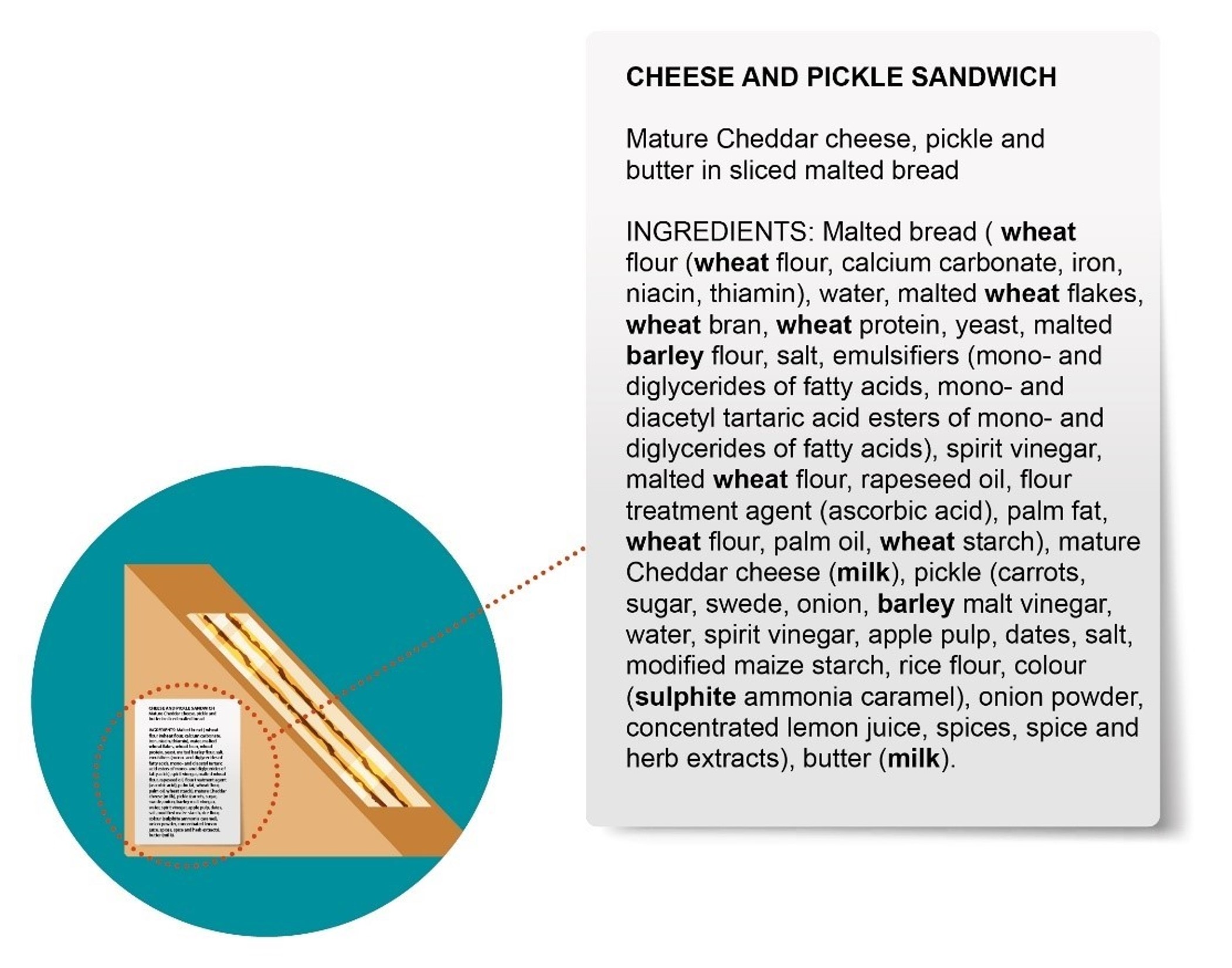If you feel ill or have an allergic reaction after eating, you should seek medical help immediately. NHS Choices has information on what to do in the event of an allergic reaction.
Call 999 in an emergency.
If you have a food allergy or intolerance, it is important that you have the information you need to make safe food choices.
If you eat out, or order a takeaway, the restaurant or cafe must provide you with allergen information. The information could be on their menu, or you need to ask a member of staff about the allergen contents of a dish. When preparing your own food, there are allergen labelling and information laws that require food businesses to provide you with information about what is in your food.
All UK food businesses are required to follow the information rules for food allergens. Although allergen information may be provided verbally to customers, the Food Standards Agency (FSA) advises that this needs to be backed up by the information being in writing, to ensure it is accurate and consistent.
It is a key recommendation that the information be recorded - for example, in the form of product specification sheets, ingredients labels and recipes or explanations of dishes. The FSA provides advice, technical guidance and free online allergy training to help businesses meet their legal requirements.
While customers have a responsibility to tell businesses about their allergy or intolerance, businesses must inform them if they use any of the 14 allergens as ingredients in the food or drink they provide. Businesses must also be able to demonstrate that they have accurate information and that it was available to the customer at the point of ordering or service.
The 14 allergens:
- celery
- cereals containing gluten, such as barley and oats
- crustaceans, such as prawns, crabs and lobsters
- eggs
- fish
- lupin
- milk
- molluscs, such as mussels and oysters
- mustard
- peanuts
- sesame
- soybeans
- sulphur dioxide and sulphites
- tree nuts, such as almonds, hazelnuts, walnuts, Brazil nuts, cashews, pecans, pistachios and macadamia nuts
Anyone allergic to ingredients not included in the 14 allergens, should always check the label or ask staff for information about your specific food allergen.
In short: businesses must make sure that the 14 food allergens are declared, that staff are trained about allergens, and that food businesses manage allergens properly.
The law regarding the labelling of food and providing information is enforced by colleagues in Trading Standards. They have a comprehensive guide available for free download.
Allergen labelling for pre-packaged direct sale food (PPDS)
Pre-packed for direct sale, or PPDS, is food which is packaged at the same place it is offered or sold to consumers and is in this packaging before it is ordered or selected. It can include food that consumers select themselves (for example from a display unit), as well as products kept behind a counter and some food sold at mobile or temporary outlets.
Businesses must display allergen labels on pre-packed for direct sale food for their customers. These provide essential information to help people with a food allergy or intolerance make safe food choices.
Food is PPDS if:
- it is fully or partly enclosed by the packaging
- it cannot be altered without opening or changing the packaging
- it is ready for sale to the final consumer
Examples of this kind of packaging would be:
- a cake completely wrapped in cling film
- a sandwich placed in a paper bag with the bag folded over or twisted to encase the sandwich
- rolls contained in a plastic bag that is tied with a knot or sealed

Food is not PPDS if it does not have packaging, or if it is packaged in a way that the food can be altered without opening or changing the packaging, for example a burger served on an open cardboard tray. The FSA have prepared detailed guidance.
Voluntary labelling
Precautionary allergen labels refer to the voluntary labelling to indicate that one or more regulated allergens could be unintentionally, but unavoidably, present in a product, and thus pose a risk to susceptible customers.
These are commonly seen as 'may contain [allergen]' or 'not suitable for people with a [x allergy]'.
There is no specific legal requirement for food businesses to label food with 'may contain', however, food must be safe to eat and information to help people with allergies make safe choices, and manage their condition effectively, must be provided.
Food Standards Agency website: Food allergy and intolerance
Food Standards Agency website: Advice for teenagers and young adults on managing food allergies
Complaints
Complaints about labelling or miss-selling
Labelling legislation and miss-selling (for example, a fish is confirmed as dairy free but is found to contain milk) is enforced by Trading Standards.
All complaints about labelling issues must be directed to them, please visit the Trading Standards website.
Complaints about hygiene or cross-contamination
For issues surrounding hygiene or cross contamination, please email the food safety team at foodandsafety@eastcambs.gov.uk or telephone 01353 665555.
